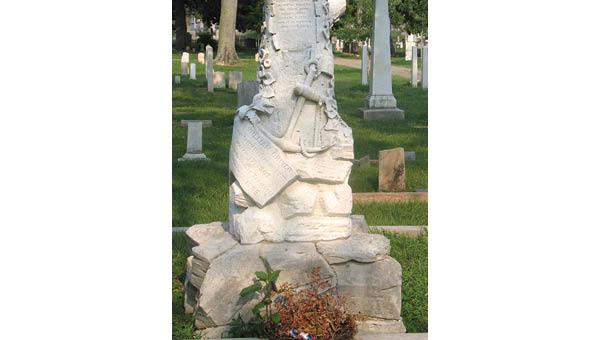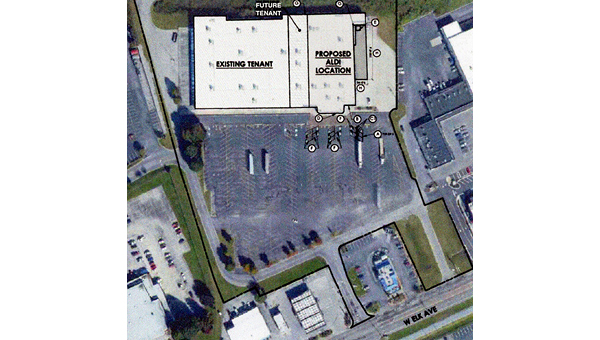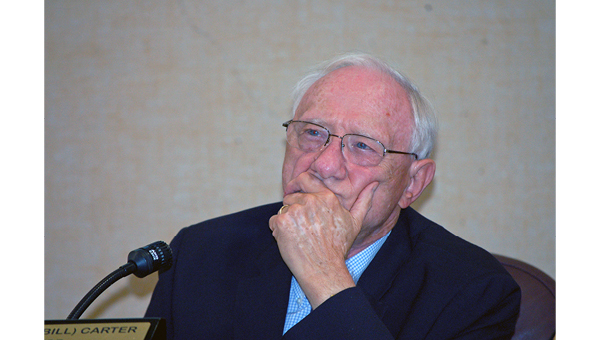Famous Nashville Unionist made his sentiments public
Published 4:49 pm Monday, October 17, 2022
|
Getting your Trinity Audio player ready...
|
By Bill Carey
When the Civil War broke out, the vast majority of Nashville residents sided with the Confederacy and were eager to go to war. However, one man made his loyalty to the union clear and even published his opinion in the newspaper at the most difficult of times.
As fate would have it, he’s famous.
The fall of Fort Sumter, which started the Civil War, occurred on April 13, 1861. News of the battle made it to Nashville via telegraph within a few hours, and on Sunday, April 14, many Nashville residents went to church and heard pro-Confederate sermons.
Then, on Monday night, a meeting took place at the Davidson County Courthouse. According to the [Nashville] Union and American, the drenching rain could not deter the crowd; the room was “jam full,” and “there was no sign of dissension — not a ripple to disturb the universal accord of sentiment.”
Several people spoke in favor of the Confederacy, including Nashville and Chattanooga Railroad President Vernon K. Stevenson and Nashville Mayor R.B. Cheatham. Cheatham pointed out that President Lincoln had ordered all assemblies conspiring against the U.S. government to disperse. However, the mayor vowed to disobey this order; in fact, “with all his heart he would cheer them [such assemblies] on to the conflict, and bid them God speed in the righteous cause in which they were engaged.”
Another speaker was General William Moore, a Coffee County resident and veteran of the War of 1812. “He recounted the perils and the valiant deeds of the fathers of some of those present,” the Union and American reported, “and invoked them as they loved the dead who died in the sacred cause of liberty … to resist at whatever cost and whatever peril aggressions upon our rights, and an unholy war upon our Southern brethren.”
The Reverend John B. McFerrin of the McKendree Methodist Church was also asked to speak. Although he did not approach the podium, McFerrin made his sentiments clear. “He assured the assembly of his profound sympathy and his devout prayer for God for success of the right,” the paper reported.
After speeches were made, a resolution was presented and passed “without a dissenting voice” urging the people of Tennessee “to proceed immediately to organize military companies.”
The story concluded by saying that as the crowd dispersed, “a thousand cheers rent the air for Southern independence. Again, we say, there has been nothing like it before in the city of Nashville.”
The account of the meeting reminds us that Nashville was overwhelmingly pro-Confederate. But a small item in the same Union and American published the next day makes it clear that there was at least one resident who remained publicly loyal to the union. His name was William Driver; he was a Massachusetts native who had spent part of his life as a civilian ship’s cabin before retiring from seafaring in 1837 and moving to Nashville to help run his brother’s dry goods store.
Driver’s short letter:
“Fellow Citizens: In allusion to an article in the Union and American of this date, I beg to say, now and forever; I am for the Union, for the Constitution and Enforcement of the laws. WILLIAM DRIVER
We don’t know what type of harassment Driver suffered for making this public statement, but we can imagine.
I suspect you’ve heard the rest of the story, but if you haven’t: Driver had, in his home, a large American flag he had treasured for years and which he referred to as “Old Glory.” During the next few weeks, as Tennesseans publicly burned American flags in the name of the Confederacy, Driver hid his flag to keep it safe. After the U.S. Army invaded Nashville in February 1862, Driver asked an army officer to raise it over the Tennessee State Capitol, in place of the small American flag already hanging there. The officer did as Driver asked, and stories were written and published about Driver, his flag and the fact that he called it “Old Glory.”
That’s why the American flag is called “Old Glory,” and that’s why Driver’s American flag still hangs in the Smithsonian.
Bill Carey is the founder of Tennessee History for Kids, a non-profit organization that helps teachers cover social studies.






